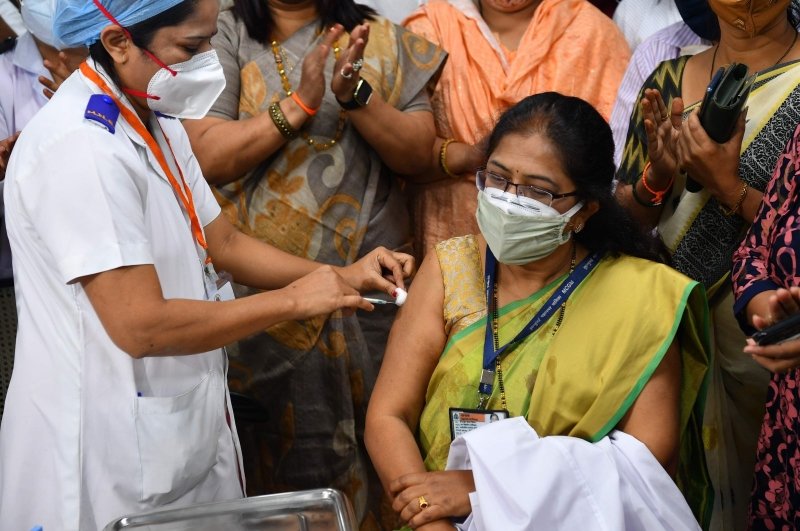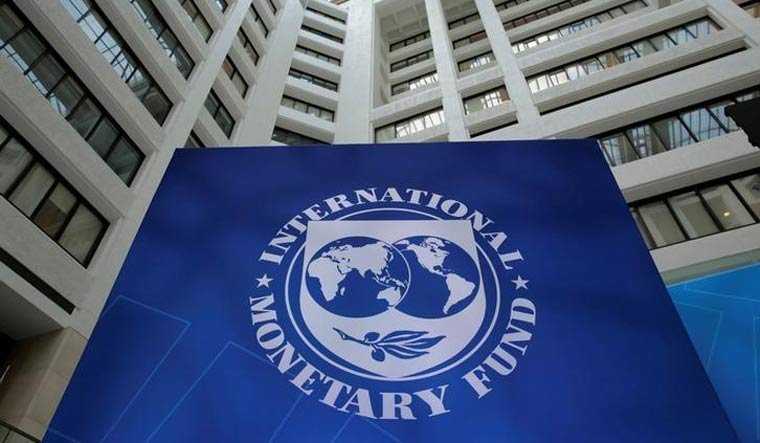
The IMF in its report based on “consultations” among members, however, cautioned that the economic outlook remains “cloudy” due to uncertainties related to the pandemic, which contribute to both downside and upside risks.
A health worker collects a swab for rapid antigen testing from a farmer in his field during a door-to-door vaccination campaign amid the ongoing COVID-19 outbreak, in Banaskantha district in the western state of Gujarat. (Representative image: Reuters)
Describing the Indian government’s response to the COVID-19 situation as “rapid and adequate”, the International Monetary Fund (IMF) has said the country has continued labor reforms and privatization despite the pandemic.
The IMF in its report based on “consultations” among members, however, cautioned that the economic outlook remains “cloudy” due to uncertainties related to the pandemic, which contribute to both downside and upside risks.
In its “Article IV” advisory report, it further said that the continued negative impact of COVID-19 on investment and other growth drivers could prolong the economic recovery.
On the Indian government’s handling of the pandemic, the multilateral agency said it was “swift and substantial … It included financial support, including support to vulnerable groups, monetary policy easing, liquidity provision, and adjustments to financial sector and regulatory policies.” Huh. “.
“Despite the pandemic, authorities continue to implement structural reforms, including labor reforms and a privatization plan,” the report said.
The IMF has projected India’s economic growth to be 9.5 percent in the financial year 2021-22 and 8.5 percent in 2022-23. Headline inflation is projected at 5.6 per cent in 2021-22 amid higher price pressures.
“The economic outlook remains cloudy due to pandemic-related uncertainties, contributing to both downside and upside risks. The continued negative impact of COVID-19 on investment, human capital and other growth drivers could prolong recovery and moderate period may affect growth,” the IMF said.
It further said that while India benefits from favorable demographics, disruption in access to education and training due to the pandemic can improve human capital.
At the same time, the recovery may also be faster than expected, it said, adding that faster vaccination and better medical science can help in limiting the spread and impact of the pandemic.
In addition, successful implementation of the announced comprehensive structural reforms could enhance India’s growth potential, the IMF said.
Under Article IV of the IMF’s Agreement, the IMF holds bilateral discussions with members, usually every year.

